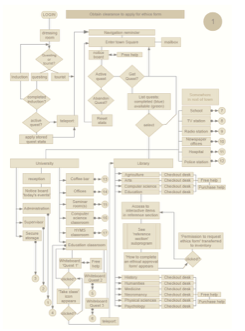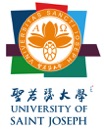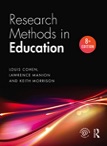
The Flagstone Project uses an experiential learning approach to explore and develop the
higher-order thinking skills required for conducting research. The setting of the virtual university
town of Flagstone allows participants to explore and learn independently or in collaboration
with others.
Abstract and technical areas of knowledge and understanding can be difficult to master, even
with the skilled support of tutors and individual mentoring. Research methods are a typical
example of such an academic area. However, research methods form an essential part of the
required learning for many students in universities in most subject fields and are an important
part of their assessed coursework and these difficulties can therefore be especially problematic.
One of the most common problems students experience in mastering the content of research
methods courses is in developing a successful practical application of their theoretical
knowledge. This is usually most evident in programmes that include field-work or a project
based dissertation, where students’ practical application of research methods often falls below
the standard of their other assessed work in this area. The Flagstone Project is addressing this
problem by developing a learning environment within a purpose-built virtual world, where
students can benefit from practical, experiential learning to apply and sharpen their
understanding of research methodology and learn how to successfully conduct ethically
sound academic research.
Flagstone participants explore an immersive virtual world and interact with quests focussed on different aspects of research methods. Participants may work independently or collaboratively with quests and in-world characters, scenarios, tasks, problems and academic content. The project makes significant use of applied experiential learning along with content acquisition and uses in-world assessments and background metrics to monitor and report on individual progress. The project is being developed with university partners and academics to reflect the real issues and skills that are part of the curriculum in taught programmes in Higher Education settings and is linked to the contents of the newest edition of Research Methods in Education, which is the leading textbook in the field and to which Prof. Martin has contributed chapters, content and online resources over several years.
Flagstone guides and teaches participants in key skills from simple early beginnings using generic scenarios and interactive learning resources. Users progress through a series of interlinked sequential stages and learning experiences that include assessments of progress as they complete the various scenarios and master the issues involved. The process guides and supports participants in gaining key knowledge, understanding and skills needed for conducting research projects from simple beginnings to more challenging scenarios.
Phase 1 enables Higher Education students to acquire the skills and knowledge for conducting effective, efficient and ethical research. Immersed in the engaging virtual environment, students can explore, collaborate and learn how to use their growing knowledge, understanding to apply inference and logic to develop an optimal strategy from starting a model research project through to completed data acquisition.







Research Methods in Education
An experiential immersive research methodology environment

